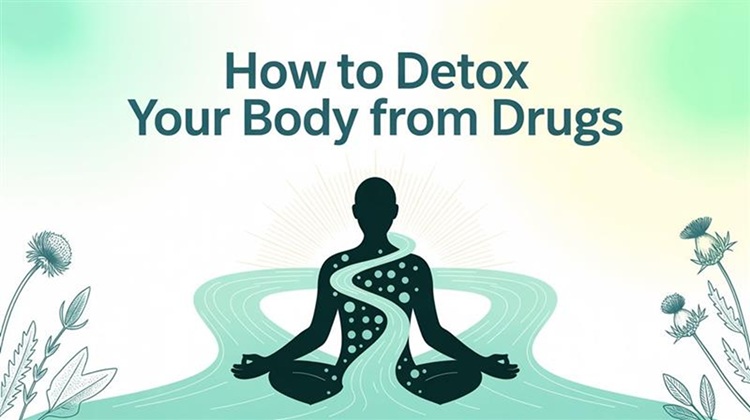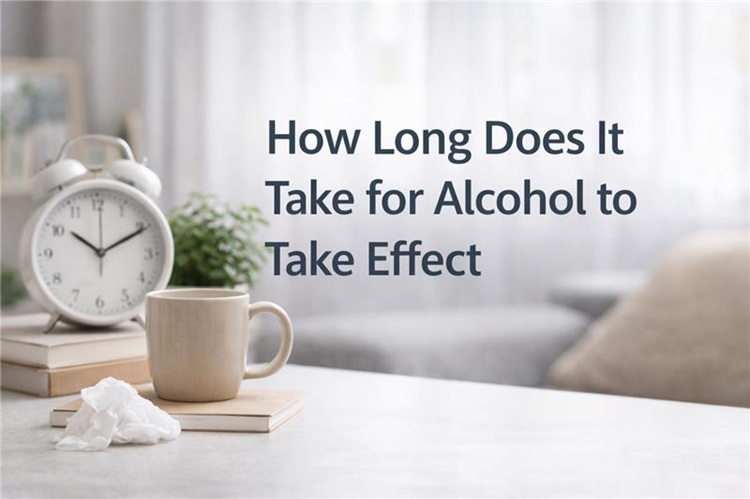Alcohol has varied effects in the body and it is important to learn how long alcohol lasts in your system, and how long alcohol withdrawal takes in case of seeking help or support. Whether you are screening your relationship to drinking or inquiring on treatment, the first question is how to come up with clear answers to aid in recovery.
DeLand Treatment Solutions is a place where people are getting assistance to overcome alcohol dependence with evidence-based treatment and with support and care. But in this blog we shall explain how your body metabolizes alcohol, what factors determine that it stays in your body and how long the withdrawal effects could last once you stop its consumption.
How Long Does Alcohol Stay in Your System?
Understanding how long alcohol stays in your system is dependent upon a few serious factors, which include how much of alcohol you have consumed, the pace of metabolism, age, weight, gender, liver health, and hydration.
Normally, an individual can consume up to one standard drink per hour. Nevertheless, alcohol may still be present in your body for a much longer period, depending on the test that is conducted:
Blood: As many as 12 hours
Breath: 12 24 hours
Urine: 12 to 72 hours (varies by the test)
Saliva: 12 to 24 hours
Up to 90 days
Key Factors That Affect Alcohol Detection Times:
Quantity of Alcohol: The more of it, the longer the detection period.
Body Composition: Individuals who have more body fat take longer to get rid of alcohol in the body.
Healthy Liver: A Healthy liver will be able to process alcohol at a quicker rate.
Hydration and Food Consumption: Water and food consumption retard alcohol absorption.
Medications: Some drugs may interfere with alcohol metabolism.
When the question is how long alcohol remains in the system until a test, one has to keep in mind the method of testing as well as the state of your health. In case you are constantly worried about the period of detection, then this may be the signal, and you should consult a psychiatrist.
How Long Does Alcohol Withdrawal Last?
As soon as you quit drinking, you start the process of detoxification in your body. Alcohol withdrawal is a response of your body when you stop using alcohol after extensive or long periods of drinking. The symptoms may be mild and life threatening.
Timeline of Withdrawal of Alcohol:
6-12 hours: Anxiety and irritability start, nausea, insomnia and tremors appear
12-24 hrs: Anxiety of hallucinations or seizures
24-72 hours: Peak symptoms; development of delirium tremens (DTs) is possible
3-7 days: The greatest physical symptoms disappear
1-2 weeks+: Emotional symptoms e.g. depression and cravings, can persist
The duration of alcohol withdrawal will also depend on the degree of dependence, your history of drinking, and the prospect of medical management of detox. More serious cases may result in the manifestation of Delirium Tremens (DTs) in 2-3 days, and in such situations, there is the necessity of emergency treatment.
100% Confidential Support is Available 24/7
No matter what you’re going through, you’re not alone. Our dedicated team is here to provide a safe, judgment-free space where you can talk openly and honestly. Whether you need emotional support, resources, or just someone to listen.
We’re here for you—completely confidential and always respectful of your privacy. Call us today!
Why Professional Help Matters
Attempting to quit drinking alcohol by going cold turkey may be risky. Alcohol withdrawal is not only one of the few types of substance withdrawal that can be fatal, but it is also very commonly occurring.
At DeLand Treatment Solutions, our medically staffed detox uses the best practice methods of withdrawal and signs patients up with personalized treatment plans to help you or your loved one to withdraw safely and begin to recover successfully. We have trained personnel that is always there around the clock to help you through all the processes—withdrawal management, therapy, and relapse prevention.
The alcohol recovery tips we offer are:
Medical Detox: 24/7 care and services aimed at making the withdrawal comfortable
Individual and Group Therapy: Treatment of the causes of alcohol misuse
Medication-Assisted Treatment (MAT): In case of need to relieve the symptoms and alleviate cravings
Aftercare Planning: The process of providing follow-up after a person is done with treatment to enable him/her to stay clean
Looking to find out information on how long alcohol stays in the system or how long alcohol withdrawal takes? No matter what queries you have, we will be walking you through the process.

When to Seek Help
When you are wondering how long alcohol stays in your system, then there is a good possibility that alcohol is playing too big a role in your life. A high frequency of drinking, blackouts, drinking in the morning, and physical dependence are the indicators that one should consider professional care.
Although you may have made attempts in the past to overcome the addiction on your own, you can do it with the proper support in place.
Begin Your Recovery Journey
Being aware of the limits of the time that alcohol remains in your system and the duration of alcohol withdrawal may assist you in making good decisions related to your health and recovery. It may be the case that you or someone you care about is fighting alcohol use. At DeLand Treatment Solutions, we provide the skills, skills, and support you need to make this lasting change.
Start to recover now! Contact DeLand Treatment Solutions at (386)-866-8689 or visit our site to check your insurance.
FAQs About Alcohol and Detox
Q1: How long does alcohol stay in your system for a blood test?
Commonly, alcohol can be traced in a blood test within 12 hours after your last drink. And precisely, it is a matter of hours; the number of hours will be related to these same factors, such as the number of drinks taken, your metabolism as and the sensitivity of the testing procedures employed.
Q2: Can alcohol be detected in a urine test after 24 hours?
Yes, 24 hours of taking alcohol, one can test positive through a urine test. There are special tests to detect alcohol metabolites that remain in the urine up to 72 hours or even more (the EtG (ethyl glucuronide) test).
Q3: What are the first signs of alcohol withdrawal?
The typical indicators of alcohol withdrawal are experienced between 6 and 12 hours after your alcoholic beverage. These may be anxiety attacks, tremors of the hands, sleeplessness, nausea, vomiting, and increased irritability.
Q4: How long does alcohol withdrawal last on average?
The symptom of acute alcohol withdrawal occurs 5-7 days on average. Nevertheless, other psychological symptoms, i.e., craving or anxiety disorders, or depression, may persist for weeks or months.
Q5: Is it safe to detox from alcohol at home?
Generally, it is unsafe to carry out alcohol detoxification at home without medical observation. Withdrawal of alcohol may cause serious and life-threatening complications in particular cases at individuals with high or extended continuous alcohol consumption.





















